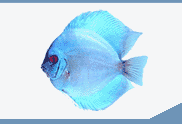

 |
||||||||||||
 |
||||||||||||
| Decapsulating Shrimp Brine Eggs | ||||||
| Page 2 of 2 | Back to Page 1 | |||||
Hatching Decapsulated Eggs  By removing the outer layer of the eggs, you will reduce their buoyancy, causing them to sink in water. This is important since a hatching system that works well for eggs with their capsules on, may not work for decapsulated eggs. Hatching containers should have steep sides to avoid the eggs settling on the sides, and aeration should come from the extreme bottom of the container. Cylindrical tanks with a steep cone in the bottom (Figure 1) are ideal hatching containers. By removing the outer layer of the eggs, you will reduce their buoyancy, causing them to sink in water. This is important since a hatching system that works well for eggs with their capsules on, may not work for decapsulated eggs. Hatching containers should have steep sides to avoid the eggs settling on the sides, and aeration should come from the extreme bottom of the container. Cylindrical tanks with a steep cone in the bottom (Figure 1) are ideal hatching containers.
Figure 1. The 'ideal' hatching container for decapsulated brine shrimp eggs. Salinity for hatching should be around 20 parts per thousand which is equal to 1 pound of salt for each 6 gallons of water. Using a strong light over the top of the tank also helps the hatching process. Decapsulated eggs hatch in 24�48 hours. The entire contents of the hatching container can then be drained through a brine shrimp net or filter and fed to your fish. Special Note Brine shrimp eggs come from many different sources. Some will react differently to this treatment, with some eggs taking longer than others to turn orange in the chlorine solution. However, the basics described above will work for any type of brine shrimp eggs. -------------------------------------------------------- Footnotes
-------------------------------------------------------- The Institute of Food and Agricultural Sciences is an equal opportunity/affirmative action employer authorized to provide research, educational information and other services only to individuals and institutions that function without regard to race color, sex, age, handicap, or national origin. For information on obtaining other extension publications, contact your county Cooperative Extension Service office. Florida Cooperative Extension Service / Institute of Food and Agricultural Sciences / University of Florida / Christine Taylor Waddill, Dean -------------------------------------------------------- Copyright Information This document is copyrighted by the University of Florida, Institute of Food and Agricultural Sciences (UF/IFAS) for the people of the State of Florida. UF/IFAS retains all rights under all conventions, but permits free reproduction by all agents and offices of the Cooperative Extension Service and the people of the State of Florida. Permission is granted to others to use these materials in part or in full for educational purposes, provided that full credit is given to the UF/IFAS, citing the publication, its source, and date of publication. 
SimplyDiscus.com gratefully thanks the Florida Cooperative Extension Service for permission to use this article. Please visit them at http://edis.ifas.ufl.edu/ |
 |
|||||
| About Us :: Message Board :: Chat | |||||
| Library :: Photo Gallery :: Links & Resources :: Breeders & Sponsors :: Merchandise | |||||
| Website designed by: EthanCote.com | � 2001-2004, SimplyDiscus.com. All Rights Reserved. | ||||